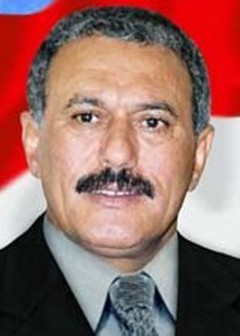RIYADH, (Reuters) – Yemeni President Ali Abdullah Saleh signed a deal yesterday under which he will step down after 33 years in power and 10 months of protests against his rule that brought the country to the brink of civil war.
Celebrations erupted in the capital Sanaa as Saleh inked the agreement that made him the fourth leader to be forced from power in 10 months of mass protests that have swept the Arab world. Yemenis danced in the streets, set off fireworks and waved flags as Saleh finally agreed to step down.

Under the agreement, signed with opposition leaders at a ceremony hosted by Saudi King Abdullah at the royal palace in Riyadh, Saleh will immediately transfer his powers to his deputy, Abd-Rabbu Mansour Hadi. In return he will retain the title of president until a new head of state is elected.
“I declare the turning of a new page in the history of Yemen,” Saudi King Abdullah said in a brief statement before the signing ceremony, also attended by Crown Prince Nayef.
“Saudi Arabia will remain the best supporter for Yemen,” the king added.
Hadi would form a new government with the opposition and call an early presidential election within three months.
“This is as honourable an exit as he (Saleh) can get, considering the circumstances,” said Ghanem Nusseibeh, a London-based analyst. “But the key thing is how the deal will be implemented and if the coalition government will be strong enough to take charge of the whole country,” he added.
The United States and the European Union hailed the accord.
“This represents an important step forward for the Yemeni people, who deserve the opportunity to determine their own future,” President Barack Obama said in a statement.





